Introduction To Blacksmithing: Session B
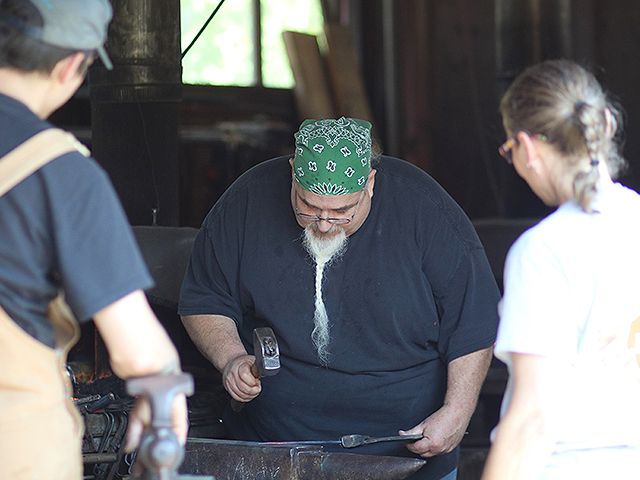
Come learn the basics of forging steel in the GAC blacksmith forge. Geared towards the absolute beginner, this workshop is designed to be educational and enjoyable for everyone. Learn techniques to build confidence in the forge under the guidance of experienced instructors. Students will shape and forge hot steel using a hammer and an anvil to complete a variety of projects.
Students will need safety glasses, dust mask or respirator, leather work gloves, (welding gauntlets not needed) and should wear jeans, a non-flammable cotton shirt and/or jacket, and closed-toed boots or leather shoes. Our forge is an outdoor building that is only semi-enclosed; please dress accordingly
Knife Sharpening Workshop: Session A
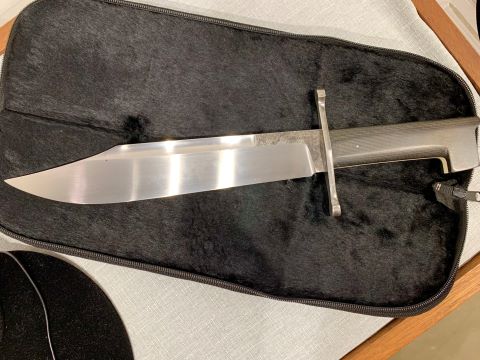
Learn the essentials of knife sharpening using stones and honing tools to achieve a clean, precise edge. Perfect for beginners or anyone who wants to maintain their kitchen or workshop knives with confidence.
Forging Snails & Whales Workshop
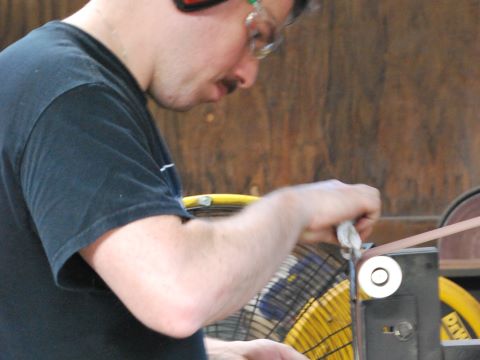
In this course, students will complete several pieces and variations of forged whales and/or snails starting from basic rectangular bar and round stock. Each piece is meant to function as decoration or as paperweights and bookends. Demos will cover basics of material management, hammer control, and serve many of the same techniques as basic blacksmithing, while being beginner friendly. Students are required to provide basic safety glasses [Regular eyeglasses are not adequate protection.]
Forging a Pukko Knife
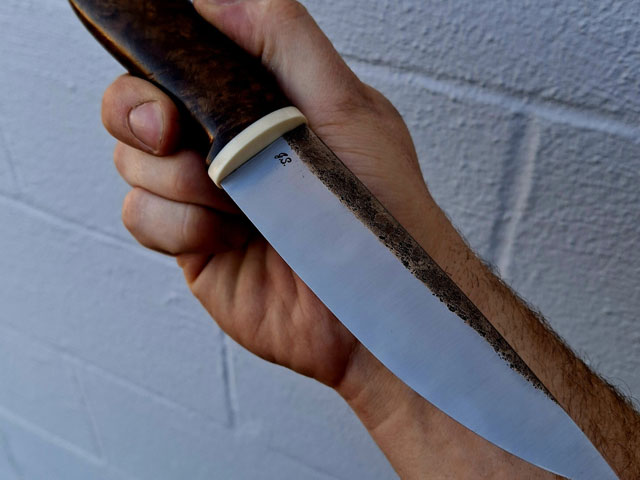
This class will focus on the form and function of a Finnish Pukko knife, a traditional hunting and utility knife favored in northern Europe. Students will understand many of the bladesmithing processes including forging, grinding, heat treating, and finishing. By the end of the course, one can expect to have a complete usable blade.
Introduction To Blacksmithing: Session A
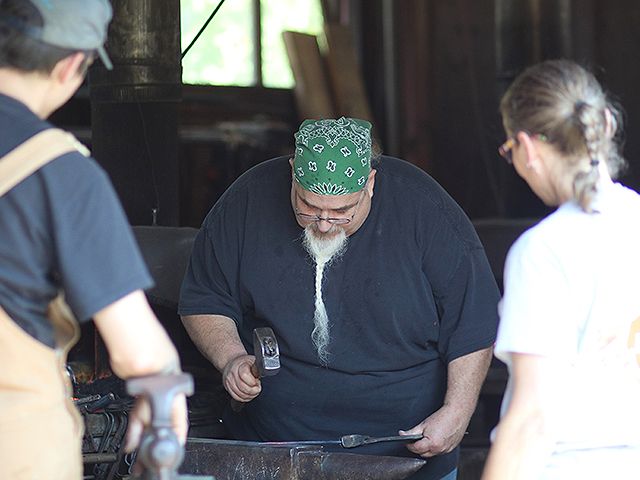
Come learn the basics of forging steel in the GAC blacksmith forge. Geared towards the absolute beginner, this workshop is designed to be educational and enjoyable for everyone. Learn techniques to build confidence in the forge under the guidance of experienced instructors. Students will shape and forge hot steel using a hammer and an anvil to complete a variety of projects.
Students will need safety glasses, dust mask or respirator, leather work gloves, (welding gauntlets not needed) and should wear jeans, a non-flammable cotton shirt and/or jacket, and closed-toed boots or leather shoes. Our forge is an outdoor building that is only semi-enclosed; please dress accordingly
Teen Blacksmithing: Session A
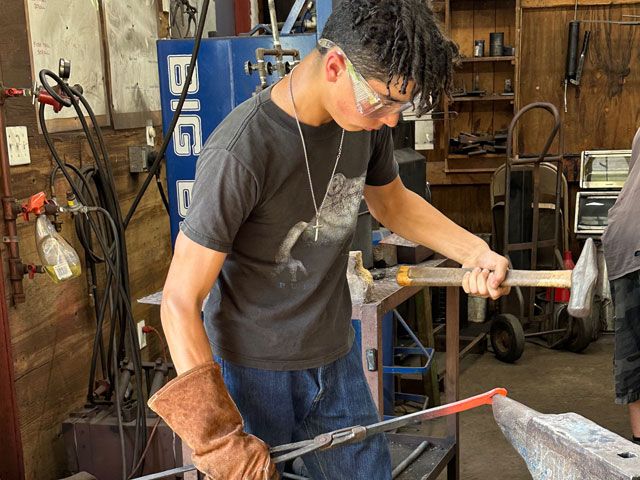
This class will teach teen students basic forging techniques. Students will learn how to build and maintain a coal fire, and use the new skills to make several small projects such as hooks, fire pokers, and hand forged jewelry. Students will need safety glasses, leather work gloves, (welding gauntlets not needed) and should wear jeans, a non-flammable cotton shirt and/or jacket, and closed-toed boots or leather shoes. Our forge is an outdoor building that is only semi-enclosed; please dress accordingly.
Intro To The Hand Forged Blade Workshop: Session B
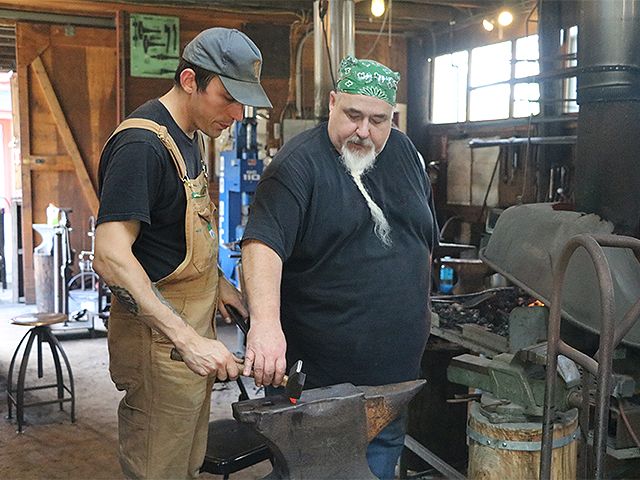
This workshop will cover the basics of forging, grinding, heat treating, and sharpening of a small utility knife. The instructor will discuss fit and finish, overall knife design, how to sharpen and care for knives, and how to begin making knives on your own. Students should expect to forge several blades over the weekend, and get at least one to the point of a usable knife.
Wizard Head Bottle Openers Workshop
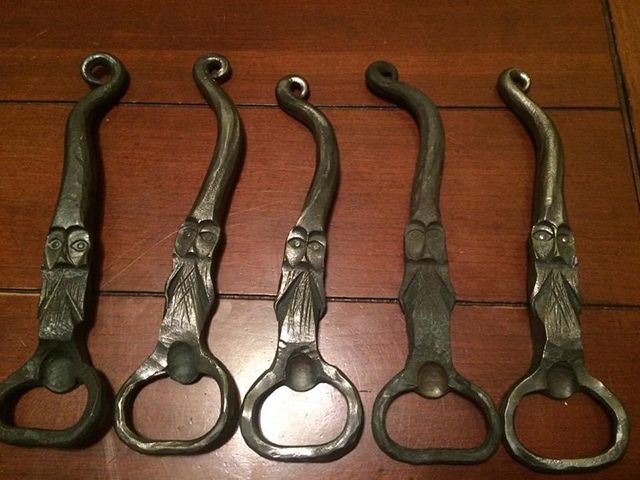
In this fun and challenging one-day workshop, students will hand-forge bottle openers from ½” square mild steel, practicing core blacksmithing skills along the way. Ideal for those who have completed an Intro to Blacksmithing or Blacksmithing course, this project reinforces techniques like drawing down, punching, chiseling, scrolling, and finishing – all while allowing room for personal creative flair.
Garden Tools Workshop
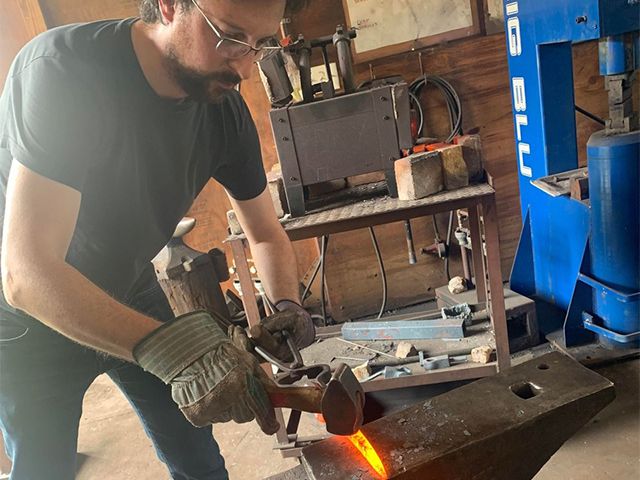
Students can get ready for the spring gardening season, creating utensils to work the soil. We will fashion a hand trowel using an old railroad spike, a hand rake and, time permitting, a weeding tool. Students will need safety glasses, leather work (fireplace) gloves, and should wear jeans, a non-flammable cotton shirt and/or jacket, and closed-toed boots or leather shoes. Our forge is an outdoor building that is only semi-enclosed; please dress accordingly. For full-day workshops, please bring a lunch to be on the safe side, as there may or may not be time to get food during a lunch break.
Teen Blacksmithing: Session C
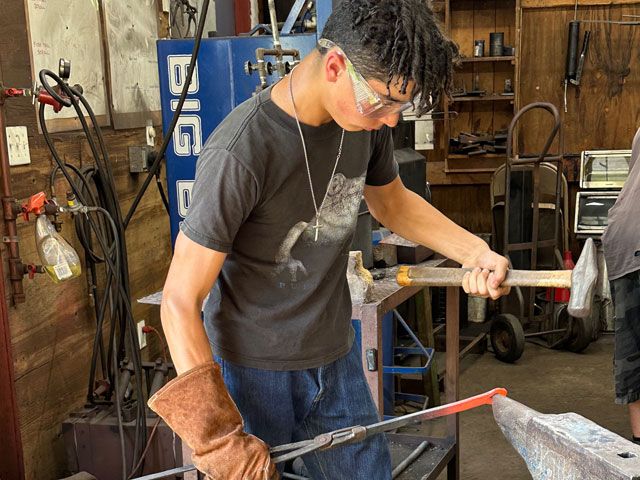
This class will teach teen students basic forging techniques. Students will learn how to build and maintain a coal fire, and use the new skills to make several small projects such as hooks, fire pokers, and hand forged jewelry. Students will need safety glasses, leather work gloves, (welding gauntlets not needed) and should wear jeans, a non-flammable cotton shirt and/or jacket, and closed-toed boots or leather shoes. Our forge is an outdoor building that is only semi-enclosed; please dress accordingly. Please note: NO class on 3/17

